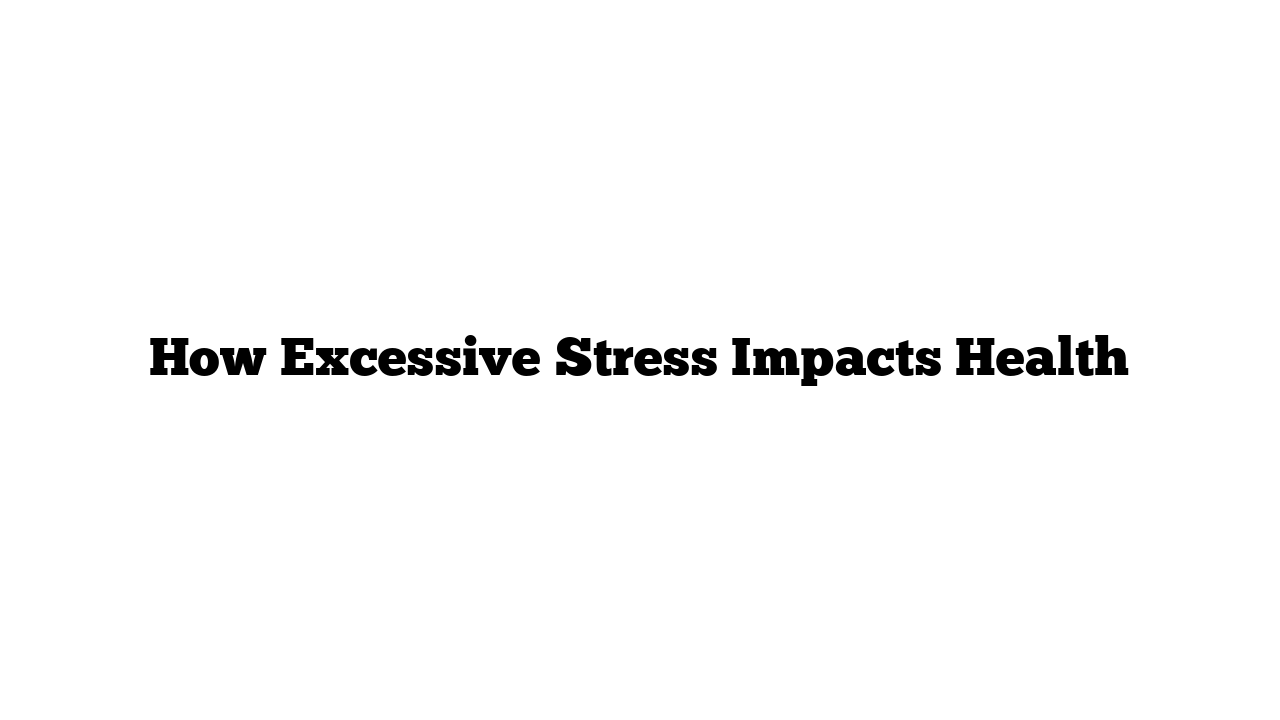Understanding the Impact of Excessive Stress on Health
Stress is a natural part of life, and in short bursts, it can even be beneficial. It pushes us to react quickly in emergencies, focus when needed, and can even boost immune responses temporarily. However, excessive stress—the kind that lingers or happens too often—can have serious health consequences. Here, we’ll explore how chronic stress affects various parts of the body and discuss ways to help manage it.
What Is Excessive Stress?
Excessive stress occurs when the body stays in a heightened state of tension for extended periods. This is often triggered by ongoing worries like work deadlines, financial concerns, or relationship issues. In the USA, for instance, job-related stress is one of the leading causes of chronic stress. According to the American Psychological Association, around 75% of Americans experience stress-related physical or emotional symptoms at some point.
How Stress Affects the Body: Key Areas at Risk
When stress becomes excessive, the body undergoes several changes. These include an increase in the release of stress hormones, particularly cortisol and adrenaline. Over time, high levels of these hormones start to wear on the body, leading to health issues.
1. Heart Health
Chronic stress keeps the heart working harder than usual. Elevated levels of adrenaline increase blood pressure, which over time can lead to heart disease, stroke, and high blood pressure. Studies from the American Heart Association indicate that people experiencing prolonged stress have a higher risk of cardiovascular disease .
Read This : What Chronic Stress Does to Your Mind and Body: Understanding the Impact on Health
2. Digestive System
When you’re stressed, digestion slows down, which can cause stomach problems. Persistent stress may lead to conditions like irritable bowel syndrome (IBS), ulcers, and even digestive discomfort. Many people in the USA report “nervous stomachs” or indigestion when facing stressful situations. Gastric issues like these are directly linked to prolonged stress exposure .
3. Immune System
While short-term stress can briefly boost immune response, chronic stress weakens the immune system, making the body more vulnerable to infections. According to recent studies on psychoneuroimmunology, prolonged stress disrupts immune function, reducing the body’s defenses against illnesses like the common cold or flu .
Mental Health: The Emotional Toll of Excessive Stress
Stress doesn’t just affect the body; it has a profound impact on mental well-being. Long-term stress increases the risk of anxiety and depression. People often feel overwhelmed, leading to feelings of helplessness or sadness. If stress becomes unmanageable, mental health can decline, affecting every aspect of life.
“Stress does not empty tomorrow of its sorrow; it empties today of its strength.” This quote rings especially true for those dealing with ongoing stress.
Simple Tips to Manage and Reduce Stress
Managing stress doesn’t have to be complicated. Here are a few simple strategies to help ease the load:
- Practice Deep Breathing or Meditation: These can calm the nervous system and reduce cortisol levels.
- Exercise Regularly: Physical activity is proven to reduce stress hormones and release endorphins, which improve mood.
- Set Boundaries at Work and Home: It’s important to maintain a balance, especially for those who tend to overextend themselves.
- Stay Connected: Maintaining social connections can reduce feelings of isolation and offer emotional support.
For more detailed tips and to understand the effects of stress, visit medicaltimes.io.
Final Thoughts
While short bursts of stress are normal, excessive or chronic stress should not be ignored. Its effects on the body and mind can be long-lasting, impacting overall health and quality of life. Recognizing when stress is becoming unmanageable and taking proactive steps to address it is crucial for long-term well-being.
Explore more health topics and get expert advice at medicaltimes.io.
